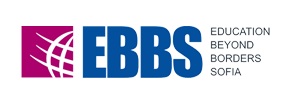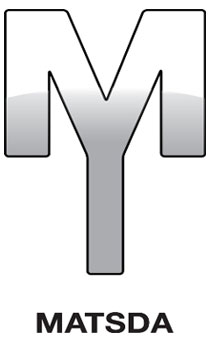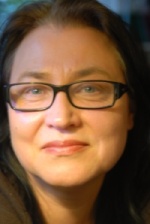Dear HLT Readers,
Welcome to the December issue of HLT. First some HLT and Pilgrims news. I am very happy to say that we are finalising some restructuring of the HLT internal engine. This also means that if you are not on our mailing list, you are now able to subscribe to HLT online. Subscription really means that you are adding your name to the mailing list and that you will be receiving a mail every time a new issue of HLT is out. You just go to the contents page to subscribe here:

Occasionally we will send you some news which may be of interest to you, for example if we get some more details regarding scholarships or grants, especially EU grants. Also we are very happy to announce that Danijela Bojanic has won The Pilgrims Scholarship, which means we will be able to meet at IATEFL 2014 in Harrogate. Congratulations!
At Pilgrims we have had a good year, with many TT courses and special projects. In An Unforgettable Experience: Participation in an EU Project on Multiple Intelligence Bonnie Tsai is sharing her reflections and experiences from an EU project Pilgrims was involved it. Don’t miss the jam packed course booklet which you can download for free.
Finally, as you may know from the editorial in the October 2013 issue of HLT or the Pilgrims flyer for 2014, Pilgrims celebrates its 40th birthday this year so there will be a one week anniversary conference. Please note the change of dates: the conference will now take place from 17th – 23rd August. The plan is to run parallel cycles of workshops lasting 4.5 split into three 90 minute sessions (some spreading across two days) and plenary sessions by prominent ELT experts. More details will be announced soon.
Now as for the December issue of HLT: it celebrates the 20th anniversary of the Lexical Approach. The idea came from Leo Selivan thanks to whom the ETAI Newsletter was entirely devoted to the Lexical Approach. HLT is now reprinting the articles from the newsletter so first I will hand over to Leo who will introduce the ETAI articles.
From the host editor
The idea for this special issue was born last year when I asked Hania to contribute to the special lexical issue of the ETAI (English Teachers Association of Israel) Forum I was invited to guest-edit. Her article “Why I won’t say goodbye to the lexical approach” had long been on my list of references for various vocabulary teaching workshops and courses I’ve been giving. Furthermore, she and Paul Davies had just published The Company Words Keep and I thought they would be an excellent addition to an issue the ETAI commissioned to mark the 20th anniversary of the Lexical Approach. Hania came up with a “counteroffer”: she suggested that we join forces and reproduce the special lexical issue of the ETAI as a special edition of HLT.

INTERNATIONAL EXHIBITION
EDUCATION BEYOND BORDERS® – SOFIA
Organizer: Bery Group Bulgaria
Dates: 28th – 30th March
17th – 19th October 2014
Place: National Palace of Culture, Sofia, Bulgaria
Dear Sir or Madam,
We would like to invite your institution to the biggest educational event in Bulgaria - “Education Beyond Borders”. The exhibition will take place in the National Palace of Culture in Sofia, the capital of Bulgaria.
You can find additional information on the following links:
Video: http://edu-fair.info/
Catalogue: www.edu-magazine.info/flip_book/2011_10/edu_magazine_2011_10.html
Pictures: http://edu-fair.info/index.php?m=1364&lang=2
Media Partners: http://edu-fair.info/index.php?m=1363&lang=2
Feedbacks: http://edu-fair.info/index.php?m=1073&lang=2
I would like kindly to invite your organization in Sofia to our next educational event named “Education Beyond Borders” on the following dates:
- 28th – 30th March 2014
- 17th – 19th October 2014
We would like to inform you that your organization can receive great discount if you make a registration before 23/12/2013.
We can offer you good conditions, both financial and organisational, together with a proper discount. That is why I would like to invite your institution earlier and to inform you in advance about our event. We would like to organize next activities in advance and we would be happy to answer to all your questions.
“Education Beyond Borders” welcomes many participants from all around the world. The exhibition will be useful for universities, colleges, schools and all kind of educational levels. There will be many educational organizations from all around the world – Europe, USA and Canada, Australia and so on.
Your participation would be very useful if your institution offers great Master and MBA programs. We will create special part of “Education Beyond Borders” which will be only for career development. The exhibition in March will be special forum about future opportunities in both sectors – CAREER AND EDUCATION. There will be many employers and educational organizations from all around the world.
If you have any further questions, please do not hesitate to contact our office at +3592 9888 604 oreducation.beyond.borders@gmail.com. We will be happy to present your programs and to discuss all opportunities and ideas!
Thank you for your attention!
Sincerely,
Mrs Vito Zaccagnino Project Assistant
Bery Group Bulgaria
74, Gen. Gurko Str., fl. 1,
1000, Sofia, Bulgaria
Phone: 00359 2 9888 604
Fax: 00359 2 950 25 11
Website: www.edu-fair.info
Email: Education.Beyond.Borders@gmail.com
|
I couldn’t believe my luck and couldn’t think of a publication more suitable to celebrate 20 years since Michael Lewis's The lexical approach: the state of ELT and a way forward (LTP, 1993) saw the light. After all, HLT is probably the only ELT journal that has a regular section devoted to corpora in language teaching. And insights from the corpus linguistics was what gave impetus to the Lexical Approach.
In the late 1980s Dave and Jane Willis proposed a lexical syllabus which, instead of following a traditional sequence of grammar items, focused on the patterns associated with the most frequent words in English. However, a crucial difference between Willis’s Lexical syllabus (1990) and Lewis’s lexical approach (1993) is that in the latter multi-word units otherwise known as chunks are accorded the most important role in language teaching.
In the last 20 years, corpus research has confirmed that the traditional boundary between vocabulary and grammar is somewhat blurred and that language is indeed very “chunky” in nature. There have been successful attempts to incorporate a more lexical approach into textbooks, namely the Innovations and Outcomes series (both by Cengage-Heinle). In our major article Making the Leap From Grammar to Lexis, Hugh Dellar, co-author of both Innovations and Outcomes, chronicles his journey through grammar teaching and describes how it has changed over the years to become more lexical.

The MATSDA/University of Liverpool 2014 Conference
SLA and Materials Development
June 28th-29th, 2014 at the University of Liverpool
Plenary Speakers: Rod Bolitho Rod Ellis Pauline Foster Alison Mackey Alan Maley Hitomi Masuhara Brian Tomlinson
Venue: University of Liverpool. Rooms to be announced.
Times:
Registration: 08.30 on June 28th and 29th
Conference: 09.00-17.30 on June 28th; 09.00-16.30 on June 29th
Fees (to include lunch and coffee)
Students: £90 (£50 for one day), MATSDA members: £120 (£70 for one day)
Non-members: £145 (£85 for one day)
MATSDA Membership: Contact Susie Pearson at
Booking, Accommodation Enquiries and Payment
Contact Filomena Saltao ; Tel - (44) 0151 7953129
Offers of Papers
To offer a paper for a forty five minute presentation contact:
Brian Tomlinson / brianjohntomlinson@gmail.com
SEE YOU IN LIVERPOOL IN JUNE
|
Sadly in this issue we are also saying good-bye to Dave Willis in Remembering Dave Willis: We are Lexically Indebted to Him. Dave Willis’s contribution in the form of the first lexical syllabus may have been overshadowed by Michael Lewis’s seminal book but it nevertheless stands as a truly ground-breaking landmark in the history of the Lexical Approach.
Admittedly, the Lexical Approach for many is about the primacy of vocabulary in ELT and most of our contributors focus on vocabulary teaching, particularly, how they have shifted attention from words to chunks. Luiz Otavio Barros, in yet another personal account Who Needs New Words? , talks about how his approach to teaching vocabulary has changed owing to Lewis. Helen Osimo in her article Putting Into Practice: Supplementing the Syllabus with the Study of Chunks argues that high priority chunks should be taught explicitly and proposes a framework for teaching idiomatic lexical chunks. Staying on the topic of course design, Hemda Benisty (Targeting Vocabulary Acquisition for JHS – Introducing a Lexical Syllabus) describes how she devised a lexical syllabus for Junior High school.
On the research front, Dr Tina Waldman (Collocation Use in Writing Among Israeli Learners of English) reports the results of her study which looked at the production of collocations in student writing across three levels of proficiency and found that leaners at all levels underuse collocations.

IATEFL POLAND ESP SIG in LUBLIN
and
MONDIALE TESTING
have the pleasure of inviting you to the
1st International IATEFL Poland ESP SIG Conference
which is going to be held at
the University of Life Sciences,
Lublin, ul. Głęboka 28, Nowy Gmach Uniwersytetu Przyrodniczego
Building A, Room 103, 1st Floor
on January 16, 2014
Conference Programme
Live Web-Broadcasting 10:30 – 15:45 http://meet97027820.adobeconnect.com/esp-sig-poland/
Live Web-Broadcasting 10:30 – 15:45 http://meet97027820.adobeconnect.com/esp-sig-poland/
The conference is sponsored by MONDIALE-Testing and is free of charge • It is open to all teachers and students of English • To register for the conference please fill out the online registration form (go to the form) and send it to the organizers by January 10, 2014 • The number of seats is limited (180) and the registrations will be accepted on a first come, first served basis • All participants will receive a Certificate of Attendance • For more information, please contact: Joanna Rączkiewicz – email: lublin.espsig@iatefl.org.pl, Sławomir Nowikowski - phone: +48 601 219 456
|
We wanted to keep a balance between theoretical articles and classroom practice and have included a number of practical activities. Hanna Kryszewska and Paul Davies (The Company Words Keep) share a number of activities for highlighting lexical chunks from their new book The Company Words Keep, the title of which is a paraphrase of the famous quote "you shall know a word by the company it keeps" by the British linguist J.R. Firth, who is often credited with coining the term "collocation".
Collocations are also the subject of Rene Wahl’s article Teaching with Concordancing Tools in which she describes how she uses concordance software in class. More practical suggestions in the issue come courtesy of Ken Lackman (Slot-filler Relay Race), who often writes for English Teaching Professional, and Simon Mumford (Raising Awareness of Collocation in ELT), whose creative classroom ideas you can find in Modern English Teacher. Finally, my list of Online Lexical Tools will help you exploit linguistic resources on the web.
I hope theoretical insights and practical ideas presented in this issue will inspire you and help you add a more lexical focus to your teaching.
Leo Selivan

Thank you Leo. Working with you was a real pleasure
H
Now back to me. I would also like to draw your attention some more articles on lexis: Explaining and Practising the Grammar and Lexis of Academic Prose by Simon Mumford, Following the Patterns: Colligation and the Necessity of a Bottom-up Approach to Grammar by Hugh Dellar, Lexical Notebooks by Dale Coulter, and Death by Idioms Chia Suan Chong.
Two articles look at the relation between lexical chunks and pronunciation: Chunks 'n' Pronunciation by Jonathan Marks, and Pronunciation of Chunks: A Pilgrims Training Session by Marian Zamorski described by Peter Clements.
In this issue, in Student Voices (How Useful is Learning Chunks of Language? A Survey) you can read about advanced students’ opinion on how useful it is to learn through language chunks at their level, in Short Book Reviews you can read reviews of two very interesting publications sent to HLT by Routledge, in Feedback Through Chunks, Pilgrims Summer 2013, you can find out about getting feedback through pooling chunks of language; even the two poems: Xmas, Happy Bloomin' Christmas! by Alan Maley, and 21st Century Man by Paul Bress, are poems using chunks of language.
Enjoy the ‘chunky’ issue!
Hania Kryszewska
HLT Editor
hania.kryszewska@pilgrims.co.uk




|